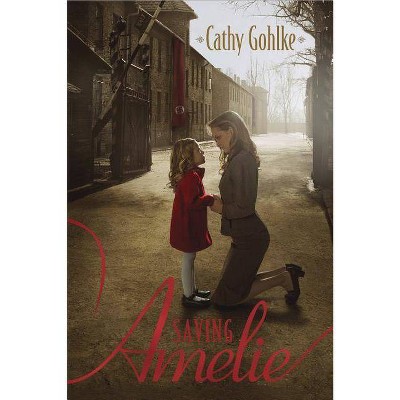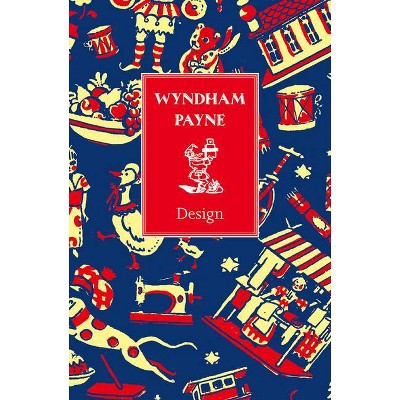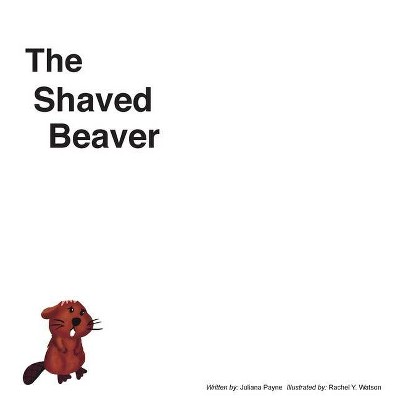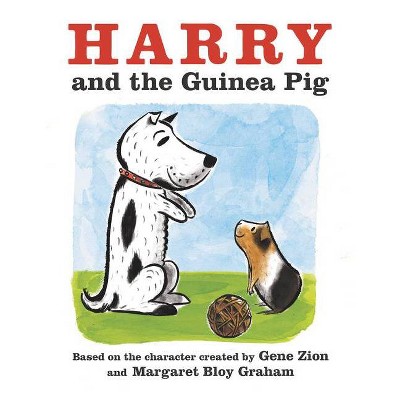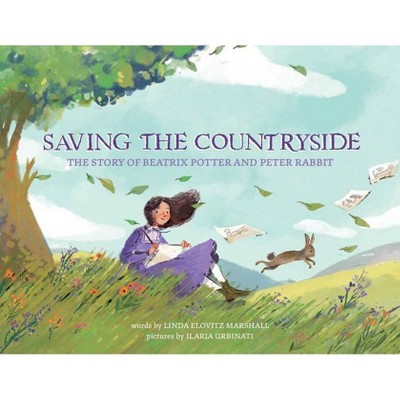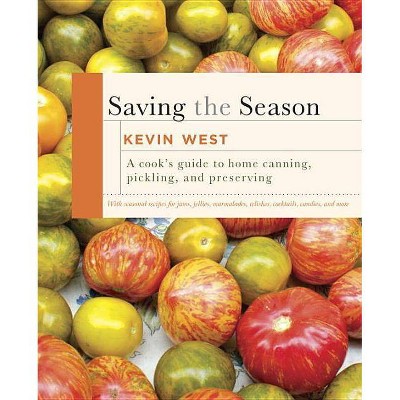Saving the Guinea Hogs - by Cathy R Payne (Hardcover)
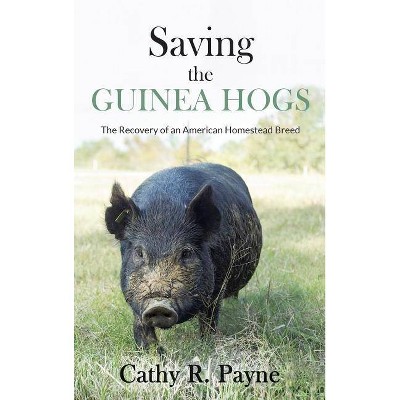
Similar Products
Products of same category from the store
AllProduct info
<p/><br></br><p><b> About the Book </b></p></br></br>An engaging history of the endangered Guinea Hog told through stories of those who remembered them in the past. How a group of dedicated conservationists worked to keep the breed alive and to help it thrive going into the twenty-first century. This book appeals to animal lovers, history buffs, homesteaders, and all who raise the hogs.<p/><br></br><p><b> Book Synopsis </b></p></br></br><p>"These were the best hogs I've ever seen," said seventy-five year old Cohen Archer. He grew up with the amiable black Guinea Hogs in Washington County, Georgia. Cohen's father died when he was just twelve years old, in 1954. His mother subsequently sold the hogs, and Cohen didn't see another one until he visited Cathy Payne's farm in 2017. Mr. Archer shares his memories of the hogs, his family's favorite breed, and how he remembered them building nests with sticks to protect their newborn litters in the woods. He also remembered their gentle natures, soft grunts, and amicable personalities.</p><p><br /> <em>Saving the Guinea Hogs</em>, a narrative nonfiction book, is the first definitive history of the Guinea Hog breed. Rich in historically accurate information, it is easy to read and full of colorful characters. It is a comprehensive overview of the people who raised Guinea Hogs from 1940 to 1995, told in their own words and enlightening stories. These first-person stories reveal the subjects' deep fondness for and attachment to the amiable Guinea Hogs. Some recall a time when their families did not have access to electricity or indoor plumbing. The Guinea Hog was utilized head to tail, providing meat, lard, and grease to meet crucial family needs.</p><p><br /> The Guinea Hog is a small, black, hairy, sturdy, and gentle breed of hog kept in the Southeastern United States prior to the Civil War. The Guinea Hog has long been a part of America's cultural history. Due to a confluence of factors, it was nearly extinct by the 1990s. The loss of any breed's unique genetic material can leave the future of a species in peril. <em>Saving the Guinea Hogs </em>will bring the characteristics of the hogs to life, including what is known of their history and genetics, their unique characteristics, their temperament and personality, and how they benefitted generations of small landholders. </p><p>Additionally, socioeconomic and political factors that eventually led to the near demise of the Guinea Hog are reported. Around 2004, a group of dedicated conservation breeders, encouraged by The Livestock Conservancy, stepped forward to save the Guinea Hogs. Cathy Payne interviewed many of the breeders and reports their stories through their own words. Her diligent research over several years retraces the history of the Guinea Hogs while preserving the memories of those who kept them. These stories are rich in details including how livestock was kept on the homestead or run in the woods on shared land, how they were marked and trained to come home, and how in some cases they were driven to market on foot, sometimes across state lines, and traded for produce. There are also stories about home butchering as a community affair and how smokehouses and other now-forgotten food preservation techniques were used before the families owned either refrigerators or freezers.</p><p><br /> When Cathy's research brought her in contact with rare genetic bloodlines not preserved during the formation of the American Guinea Hog Association (AGHA) in 2006, she worked with a network of women to obtain these genetics and work with the registry to add valuable genetic diversity to the national herd.</p><p><br /> Cathy takes what she has learned from her contacts with these breeders and focuses on strategies to preserve this breed and its distinct family bloodlines. Readers are encouraged to become active in the breed association or breed promotion. It is her hope that in 2021, the breed will not only survive, but thrive.</p><p> </p><p/><br></br><p><b> Review Quotes </b></p></br></br><br><p>"I thoroughly enjoyed reading <em>Saving the Guinea Hogs</em>. It was like sitting down with the breeders of old and listening to their guidance. Cathy R. Payne has written the definitive history of the Guinea Hog and told us how to take them into the future. I'm looking forward to the other books in this series."</p><p><em>Matthew Hunker, </em>NC, Mechanic and Guinea Hog Breeder</p><p>"<em>Saving the Guinea Hogs </em>is an important work, especially because Cathy Payne is able to take the basic problems facing local and landrace breeds and is then able to show what sort of practical steps can be taken to assure their survival as productive and adapted genetic resources." </p><p><em>D. Phillip Sponenberg, DVM, PhD, </em>Professor, Pathology and Genetics, Virginia-Maryland College of Veterinary Medicine.</p><p>"Dr. Payne's <em>Saving the Guinea Hogs </em>is more than a study of lineage and breeding. It is a powerful story about the role this special animal plays in peoples' lives. I could not decide which was more fascinating, the American Guinea Hogs, or their breeders!"</p><p><em>Kirstin L. Elsworth, PhD, </em>Assistant Professor of Art History, California State University</p><p>"Cathy Payne has worked tirelessly to preserve both the genetics and the history of the Guinea Hog breed. She has taken a variety of information over several years and put each piece together to solve the puzzle of the mostly unpublished history to inform future breeders." </p><p><em>Lori Voigt, </em>CART provider/transcriber for hearing impaired and deaf, ranch wife</p><br>
Price History
Price Archive shows prices from various stores, lets you see history and find the cheapest. There is no actual sale on the website. For all support, inquiry and suggestion messagescommunication@pricearchive.us

